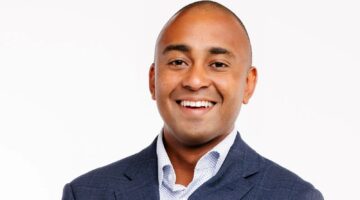If you are a digital health company in full-on growth mode, the news that a strategic investor and customer may soon be acquired would be an unwelcome development. But in a phone interview with MedCity News, Omada Health CEO Sean Duffy said Humana is best known for its Medicare Advantage business — a growth area for Omada, and an asset to its acquirer, Aetna.
He spoke with MedCity News after Omada announced it raised $48 million in a Series C round.
Duffy observed that seniors figure prominently in its clinical validation work. “We are doing a lot of work in Medicare Advantage. We want to publish some of the results for the 65+ age group,” he said.
On the other hand, the challenge to expanding its Medicare customer base is that the core Medicare program does not currently reimburse for preventive measures for addressing obesity-related chronic diseases, such as diabetes.
Duffy also provided some details on the product development front– some projects have been completed recently and others are underway. He’s particularly excited about how it has made the 16-week intervention program for people at the tipping point for obesity-related chronic diseases more customized to each user. Although it is part of an ongoing effort, it was kicked off in full force at the start of the year.
“We are entering a new phase of personalization through data: We can understand what will work best for individuals. We have just launched adaptive step goals where we don’t assume that everyone’s goal should be the same.”
The mobile apps for its program now have parity with the Web version. It has added interactive games and widgets to boost program completion rates.
Omada said it planned to develop its program for Medicaid as well. Duffy said it is collaborating with the California Healthcare Foundation and Kresge Foundation. As for the timeframe, Duffy said it is currently doing usability testing and planned to start a pilot study in 2016. “We need to make sure we have bilingual health coaches so it can be done completely on mobile phones.”
As Duffy noted, Omada Health will apply funding to do more clinical validation and will continue to assess its program’s effectiveness in reducing glucose levels and weight. He said one of the reasons he co-founded Omada Health was his conviction that there needs to be more traction on validation.
“At the end of the day, the gatekeeper is the medical director. We want to come to them with a rich body of research and peer-reviewed studies and we will really triple down on that.”
The Prevent Experience from Omada Health on Vimeo.










